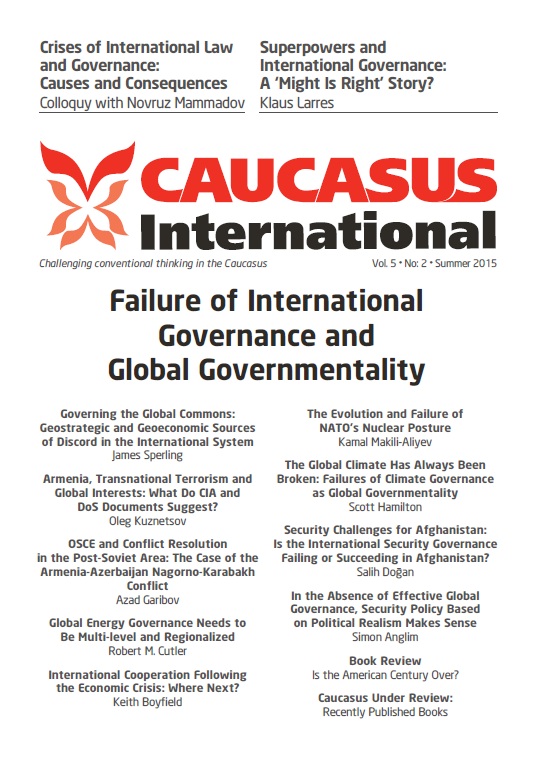OSCE and Conflict Resolution in the Post-Soviet Area: The Case of the Armenia-Azerbaijan Nagorno-Karabakh Conflict
The Armenia-Azerbaijan Nagorno-Karabakh conflict is one of the several conflicts in the post-Soviet space in which Organization for Security and Co-operation in Europe (OSCE) is involved in mediation of peace negotiations, but failed to facilitate any kind of sustainable resolution of the conflict. The OSCE continued peace-making efforts from 1992 to date; it has deployed several institutions that are tasked dealing with conflict, including the OSCE Minsk Group. In the environment of impunity coupled with the inefficacy of OSCE, Armenia refuses to compromise for the sake of peace and repeatedly sabotages the negotiations process, rendering resolution of the conflict virtually impossible. In such a complex situation, the OSCE needs to be very committed and to have a significantly more effective and coherent peace building strategy. However, OSCE’s peace efforts and mediation strategy suffers significant setbacks; the major purpose of the Minsk Group troika’s efforts seems to have become ‘conflict management’ rather than genuine conflict resolution.
Latest news
- 03/17/2020 Call for Submission: “Non-Alignment Movement and Its Perspective in International Affairs”. Deadline: 1 July 2020 2626 views
Popular articles
- 02/24/2020 The Role of Irredentism in Russia’s Foreign Policy 2536 views
- 02/24/2020 Construction of sub-national identity vis-à-vis parent state: Gagauz case in Moldova 2218 views
- 02/24/2020 The Conflict in Ukraine - The Geopolitics of Separatism and Divergent Identities (Commentary) 2072 views
- 02/24/2020 The Role of the Soviet Past in Contemporary Georgia 2044 views





